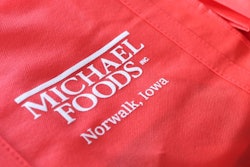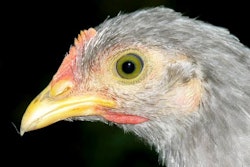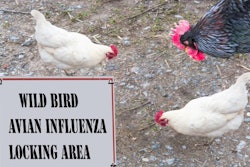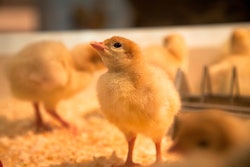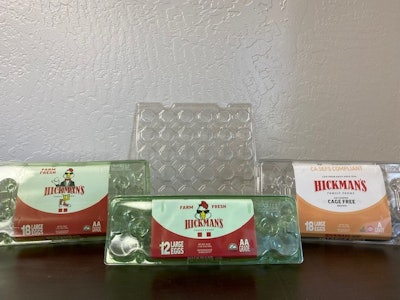
As part of its environmentally friendly mission, Hickman’s Family Farms recycles over 1 million plastic bottles weekly to make its own egg containers.
“We have been on a path to produce our own packaging for several years,” said Branden Hickman, supply chain and dry storage warehouse manager at Hickman’s Family Farms.
The cartons are made at the Hickman’s Family Farms facility in Avondale, Arizona. The plastic comes from 100% post-consumer plastic sourced from a company known as Global Plastics out of Perris, California.
“Currently we have two operating thermoformers and an extruder to manufacturer the plastic egg cartons. These thermoformers have plastic sheets installed which then heat the film. Once the film is heated it allows a mold to form the heated plastic and then chills it as its molded to allow the integrity of the plastic to harden. The carton is then cut from the sheet and palletized to ship to our facilities,” said Hickman.
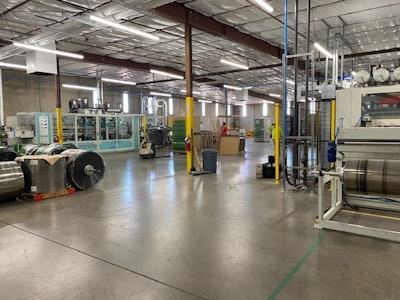
Hickman's Family Farms has 2 operating thermoformers and an extruder to manufacturer the plastic egg cartons. | Courtesy Hickman's Family Farms
He added that once they begin the extruding process themselves, they will produce their own plastic to load into the thermoformers as material to make the cartons.
Each thermoformer produces cartons at an average of 35 to 50 per minute depending on the package.
Currently, they have carton molds for the dozen in sizes small, medium, large, extra-large and jumbo. They also have molds for an 18 and 24 egg pack in sizes small, medium, large, and extra-large, along with a 5-dozen topper.
“Labels are applied by machines that are timed to apply glue through each cycle. As the carton cycles through the machine a label is then applied and as the glue dries you have a labeled carton,” said Hickman.
From an economic standpoint, this method is competitive or better than having to purchase cartons elsewhere. “Labeling and managing our own inventory also allows us to have a lot of flexibility during times like these when lead times get to be in excess of 4 weeks. We can produce our own and make sure the customer is taken care of,” he said.
This idea took several years of development and an understanding how plastic products work with high speed egg processing equipment. Hickman’s feels they have it right now and have successfully proven their design in its processing plants.
“Hickman Family Farms has been purchasing cartons whether it be molded fiber or foam for the past 63 years, so we took into account de-nesting, egg protection and closure of the package, as all are very important to us in making sure the processing plants stay efficient,” he said.
COVID impact
Unlike many production styles or methods in agriculture, COVID-19 has had no impact on producing these cartons. “COVID amplified the problems the egg industry was already facing in the supply chain for cartons. We have been approached and are working on solutions to provide to other egg companies or customer product if need be,” he said.
This method has given Hickman’s a bit of an upper hand in a time where other egg producers are struggling to even get cartons. Hickman explained that their method has offered them flexibility and has allowed them to be dependable as the customer knows they will receive product through these trying times.
Customer satisfaction
Hickman believes that having a different carton on the shelf gives them an advantage with the customers. “We are reducing waste streams by providing a solution of 100% post-consumer plastic. The cartons are all made from ground up soda, iced tea and water bottles which then get formed into cartons and process repeats itself indefinitely, also known as a closed loop product. This also allows the consumer to see the product they will be receiving at the store level before purchasing which reduces shrink,” he concluded.


